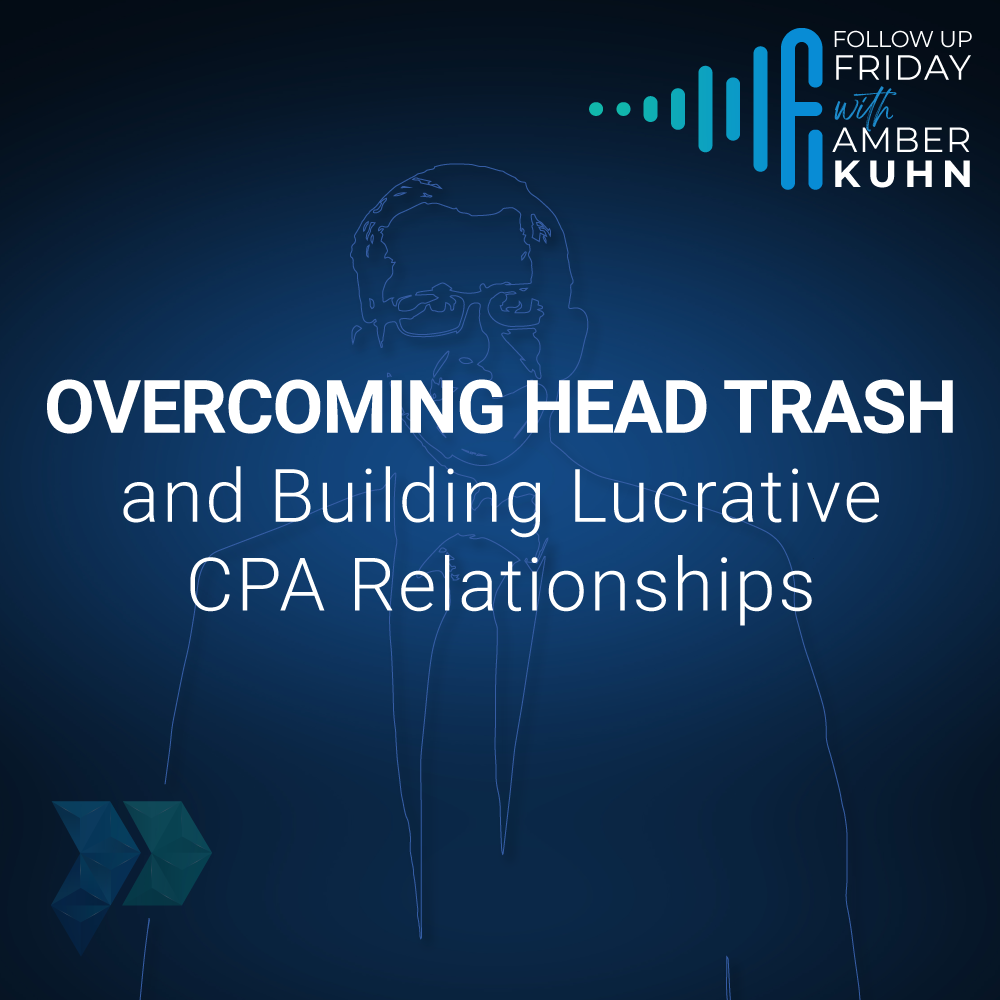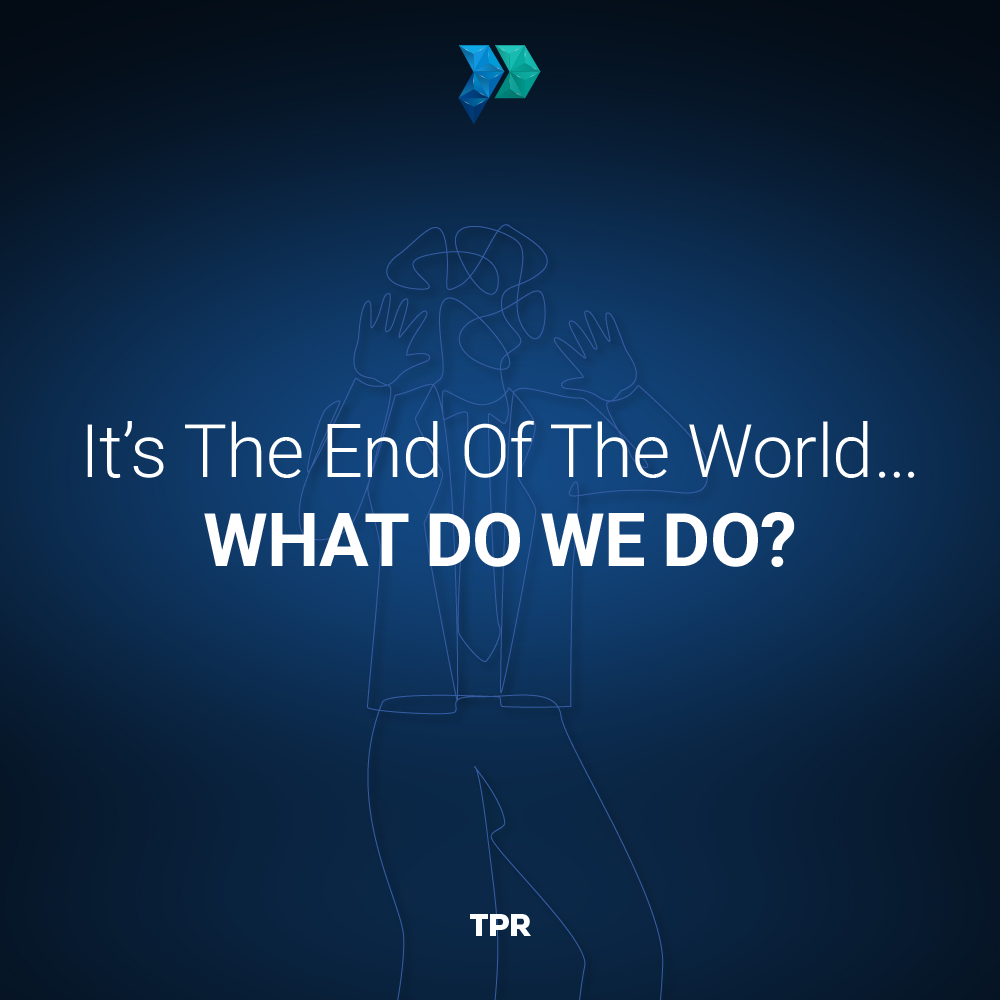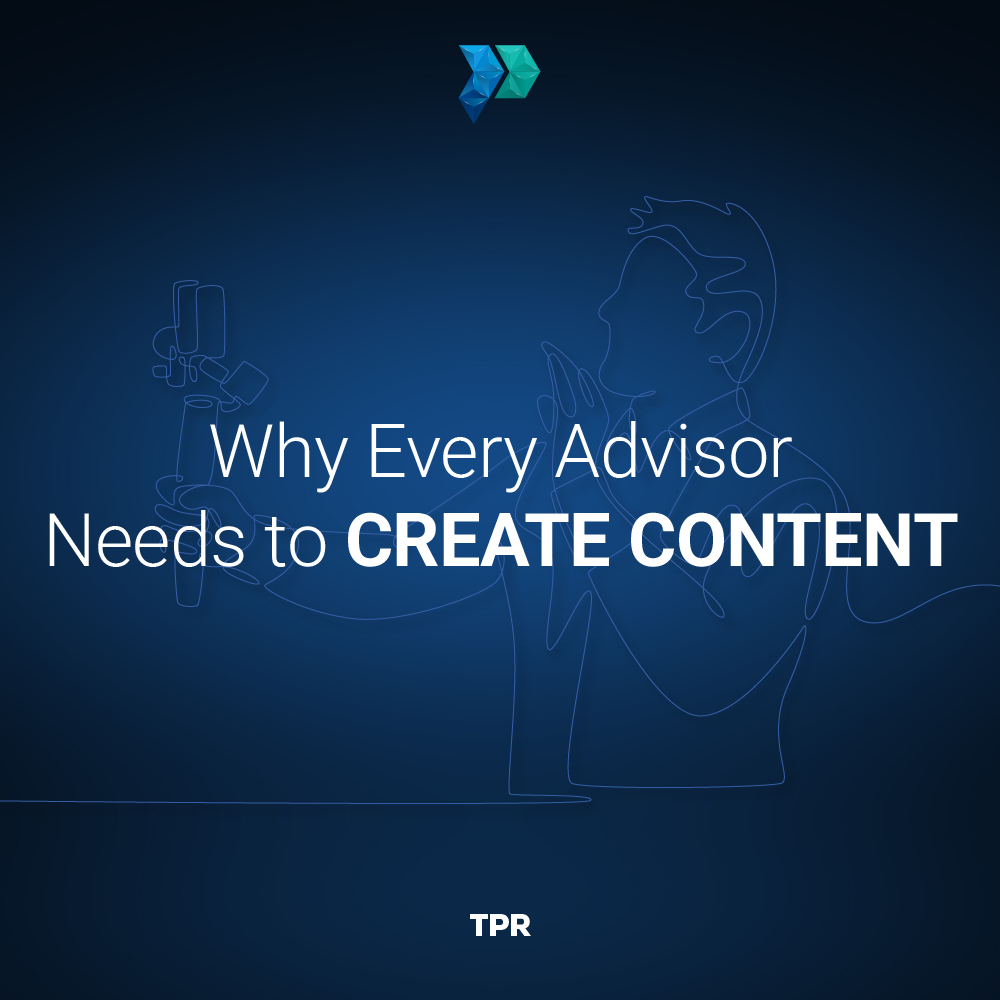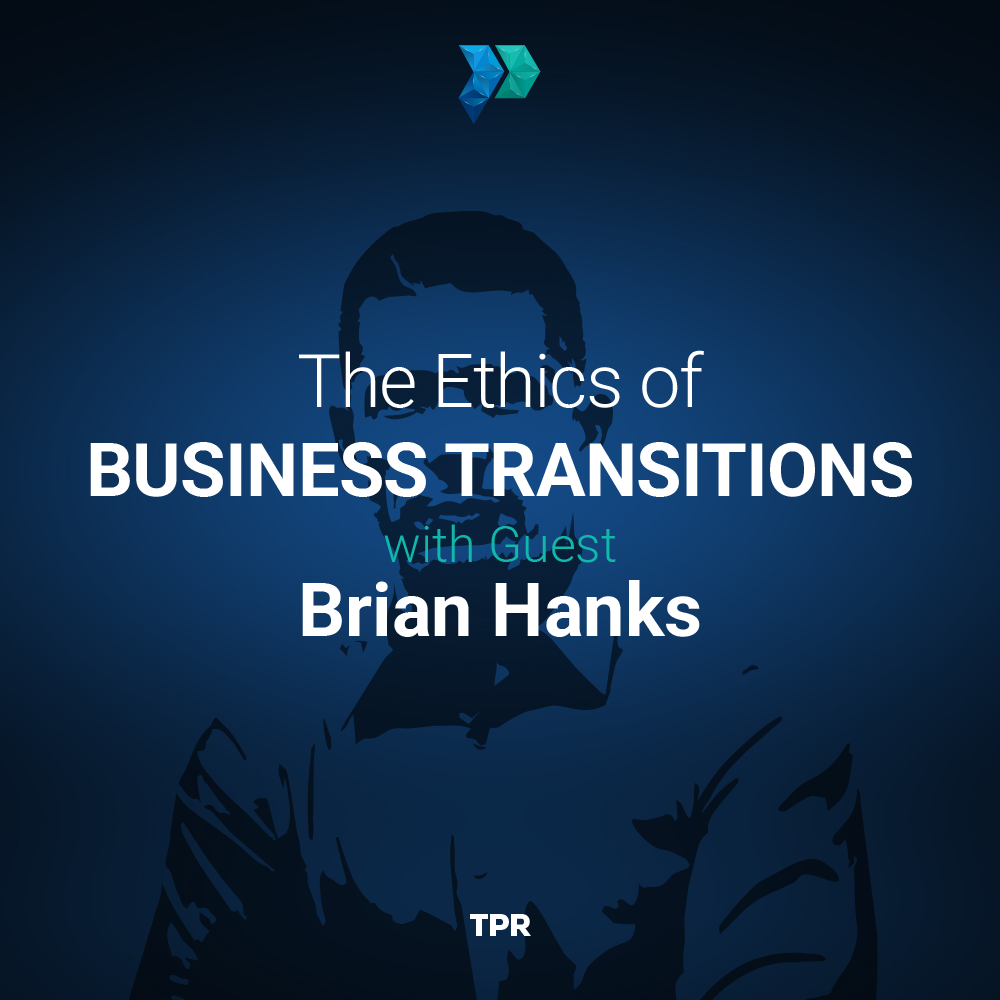What You'll Learn In Today's Episode:
- Building effective relationships with CPAs is crucial for getting referrals.
- Delivering value and convincing tax preparers of the worth of financial planning is essential.
- Reaching out to CPAs and offering to pay for their time can help build relationships.
- Joining masterminds and finding a community can help address insecurities and bounce ideas off of others.
- Creating a morning success ritual and taking control of your day can lead to greater success.
In this recap episode, Amber shared strategies for financial advisors to conquer their insecurities and build a referral-generating powerhouse through strategic partnerships with CPAs. On Monday, Matt and Steven reveal their proven approach to breaking down the ‘COI’ barrier, delivering value that tax professionals can’t ignore. Their secret? Embracing a mindset of generosity by offering to pay for CPAs’ time – a small investment that opens doors to a flood of high-quality referrals and benefits for existing clients.
But referrals are just one piece of the puzzle. Jamie discussed how to conquer the inner ‘head trash’ and insecurities that hold advisors back. Her weapon of choice? Building a supportive team and mastermind community to bounce ideas off and stay motivated through the highs and lows of the entrepreneurial journey.
Resources In Today's Episode:
Read the Transcript Below:
Amber
Hello TPR Nation this is Amber Kuhn, thank you for joining me on today’s Follow up Friday where I’ll be recapping this week’s episode highlights and action items. On Monday Matt was joined by the head CPA and founder of Retirement Tax Services, Steven Jarvis to talk about actually getting referrals from CPAs. Now we’ve been talking a lot lately about prospecting and one of those strategies is having referrals. Steven said when it comes to being asked for referrals, he loves it because it’s a great way for advisors to build really effective relationships that really helped our clients win. He said fot CPAs doing those referrals goes beyond that question of what kind of client does the advisor service but more of whether the advisor is delivering value and knowing what to expect if they do send a referral. Matt said no matter who the referral is coming from whoever is giving that referral is taking a huge risk. It could end positively or it could ruin that relationship. From a tax preparers point of view, Steven said that these key tax services as essential but financial planning, they question whether it’s a mandatory thing so advisors first need to convince a tax preparer that what they’re doing is a word and then that you’re the right person to do it. So there’s that’s a big hurdle that you have to overcome. Matt pointed out that when you’re sending someone a referral, you’re doing it to benefit yourself because you want that situation to make you look good in the eyes of the client, even if you’re not consciously thinking about it. So you have to keep in mind the other person’s mindset. Matt and Steven said one of their favorite things is to be able to say You’ve got a problem, I know someone who can help and then be able to make that introduction because they know that person will go above and beyond. So how do you build this kind of relationship over time? Matt showed his strategy that’s worked for him, and we’re about a third of his practice has been built on. He said the crux of the strategy is that he also needs to refer clients out and he wants to be in the position where he says that he knows someone to refer them to you. So instead of waiting for CPAs to reach out to him, which is that never happenes, he reaches out to see allies, and in this instance CPAs in an area who seemed to fit his niche. He reaches out to them and says that he always has clients asking for an introduction to the CPA. And while he can’t promise that any are the right fit, he’d like to pay for an hour of their time to get a feel for what they do feel for their ideal client. And that if he runs across anyone in his practice, who fits that then he will be excited to send them their way, who then asked for their hourly rate and how to get on their calendar. Matt said by offering to pay for their time and showing up with a check, he’s starting right away by delivering value. And doing this puts you head and shoulders above anyone else who’s ever called that person, including their own clients. But when it comes to the strategy of reaching out for an hour oof someone’s time, Steven said you need to get specific and consider how do you find the right people? What do you say? What do you send them? Matt pointed out that this is a two year strategy and you need a 12 month calendar of activities that you’re going to do to cultivate those relationships. So these are things that need to be put on your calendar, incorporate your team and make sure that you have a system for this. Matt said if you want to treat these CPAs that you’re reaching out to like a level top clients. So you’re sending them your newsletter, you’re inviting them to events, again, approach it in terms of what’s in it for them. Lastly, Matt and Steven pointed out that what you do with this and paying for CPAs time can be a huge value add to your existing clients, even if you never get a referral, because there’s always things that you can learn and continually improve on to better help your clients. Let’s get on the action items. Get signed up for the Retirement Tech Services Tax Summit. And if you’d like to have even more training join The Perfect RIA LIVE the day before the summit visit retirementtaxservices.com/summit and you can purchase your seat for both events. You can learn more about Steven by visiting him on LinkedIn which we have linked in the show notes. And be sure to visit the Retirement Tax Services podcast. Figure out on your calendar when and how you’re going to cultivate your centers of influence relationships. And when you hear from others who are telling you strategies that they think are going to work in practice ask them how it works the last time they did it. This is a great test for whether it’s something that you should pursue. Moving on to this weeks Worlds to Conquer encore episode, Jamie dug into the issue of head trash, and newsflash, we all have doubts and insecurities. She said once you recognize your worst fear about trying to implement something new, your first instinct is that it’s not going to work and that you’re going to lose all of your clients and your income. Once you’ve articulated those fears, then that inspirational side can kick in and you can then start walking yourself off that ledge. Jamie said you can probably recognize when other people have had trash but what happens when it’s your head trash? Who do you turn to? Jamie said that whatever you call your spiritual connection, for some that connection is enough. For others who need or want to community there’s nothing wrong with this this is where you can bounce ideas off of and address your concerns and insecurities. One of the ways that we do this the perfect right is through masterminds. Now masterminds are formed with like minded professionals in your community or your career space and you meet in person. You’re around people who have the same concerns that you do. You have an opportunity to share and it’s where you can impact your goals and your ambitions. So when joining masterminds or peer groups you need to find people who will challenge you. Masterminds are also important because you can deal with problem solvers with those solution oriented people. Now Jamie also added that it’s important for your team to have this as well, for her team, whether they’re attending a mastermind or conference, she gives them team members a mission. They have to come away with one implementable idea that they can immediately take action on. And that’s it doesn’t have to be something radical. It could be something related to just going back to the basics. Jamie’s pro tip is that every time you attend a conference, take a buffer day so that you have space to review and implement the things you want to do. That way when you get home, you’re completely present. Jamie said some of the things that you can do on a day to day basis in order to deal with your head trash. The first thing was looking at creating a morning success ritual start with how you’re waking up in the morning. Consider from there going outside for five to 10 minutes or taking a walk and during that time you can focus on gratitude. After morning logistics, look at the things that you need to do that day. Now when Jamie talked about this. Notice that she didn’t say that she’s going through her emails to figure this out. Her email doesn’t become her to do list. So you need to look at how you can adjust your schedule to block that time to check your emails since you’re not living in there. So look at what is your morning success ritual that puts you in the headspace, the spiritual space and the physical space to really go and conquer and what are the things that you’re going to do every day that sets you up for success. This episode was jam packed with action and so let’s recap what you can do to help with that head trash. Join a mastermind find someone that you can be vulnerable with and a group that’s going to be actionable and push you into an uncomfortable place. If you have negative energy, change what you’re eating, consuming and doing on a day to day basis. Look at who you’re surrounding yourself with and make sure that you’re setting yourself up for success by only allowing people in your environment that are going to propel you towards greatness. Remember boundaries are important because they keep you in your greatness. If you’re leading a financial advisory office and you aren’t implementing the strategies that Jamie shared for your team, you’re doing them a disservice and you’ll only get them at their mediocre level. Evaluate your morning success ritual and consider what you’re doing every single day to put yourself in the best mindframe to conquer and achieve all of your goals. And stop being reactionary. Start being proactive. Take control of your day. Get out of your email, write down your goal and do big things. Before we go to TPR Nation, if you’re looking for an opportunity to learn in person from Matt and Micah, be sure to join us this September at TPR Live in Arizona. Visit theperfectria.com/live for more information and to save your spot. And if you’re looking for our newest masterclass on prospecting, visit theperfectria.com/prospect. Thank you for joining me today and be sure to give us five stars wherever you’re listening and share this or any of our episodes with another advisor or team member who you think might benefit. Until next time. Happy planning!








